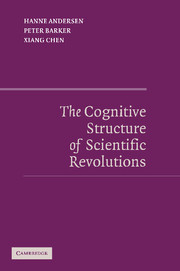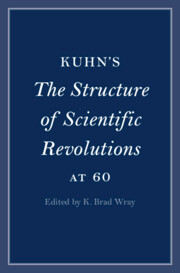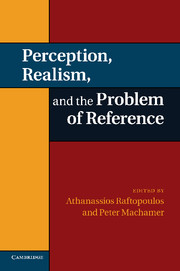The Cognitive Structure of Scientific Revolutions
Thomas Kuhn's Structure of Scientific Revolutions became the most widely read book about science in the twentieth century. His terms 'paradigm' and 'scientific revolution' entered everyday speech, but they remain controversial. In the second half of the twentieth century, the new field of cognitive science combined empirical psychology, computer science, and neuroscience. In this book, the theories of concepts developed by cognitive scientists are used to evaluate and extend Kuhn's most influential ideas. Based on case studies of the Copernican revolution, the discovery of nuclear fission, and an elaboration of Kuhn's famous 'ducks and geese' example of concept learning, this volume, first published in 2006, offers accounts of the nature of normal and revolutionary science, the function of anomalies, and the nature of incommensurability.
- Uses cognitive science to evaluate and extend the ideas of Thomas Kuhn
- New accounts of the nature of normal and revolutionary science, the function of anomalies and the nature of incommensurability
- Incorporates insights from both traditional philosophy of science and constructivist sociology of science
Reviews & endorsements
"Does the proposal for a newly cognitivized Kuhnian approach work? Can it offer the historian of science a useful set of tools? For this reviewer the answer is clearly Yes, though much remains to be done. Still given its richness and the clarity with which the case is argued, this is a work which will have to be dealt with. Cognitive science does offer historians tools for a new approach to the history of science, one that would have pleased Kuhn himself." - Ryan D. Tweney, Bowling Green State University
"This imaginative and carefully argued book should succeed in making historians and philosophers of science take a fresh look at the Kuhnian approach in the light of cognitive psychology; it also deserves a wider readership." --Luke O'Sullivan: Philosophy in Review
Product details
April 2006Hardback
9780521855754
220 pages
229 × 152 × 16 mm
0.5kg
Available
Table of Contents
- 1. Revolutions in science and science studies
- 2. Kuhn's theory of concepts
- 3. Representing concepts by means of dynamic frames
- 4. Scientific change
- 5. Incommensurability
- 6. The Copernican revolution
- 7. Realism, history and cognitive studies of science.






